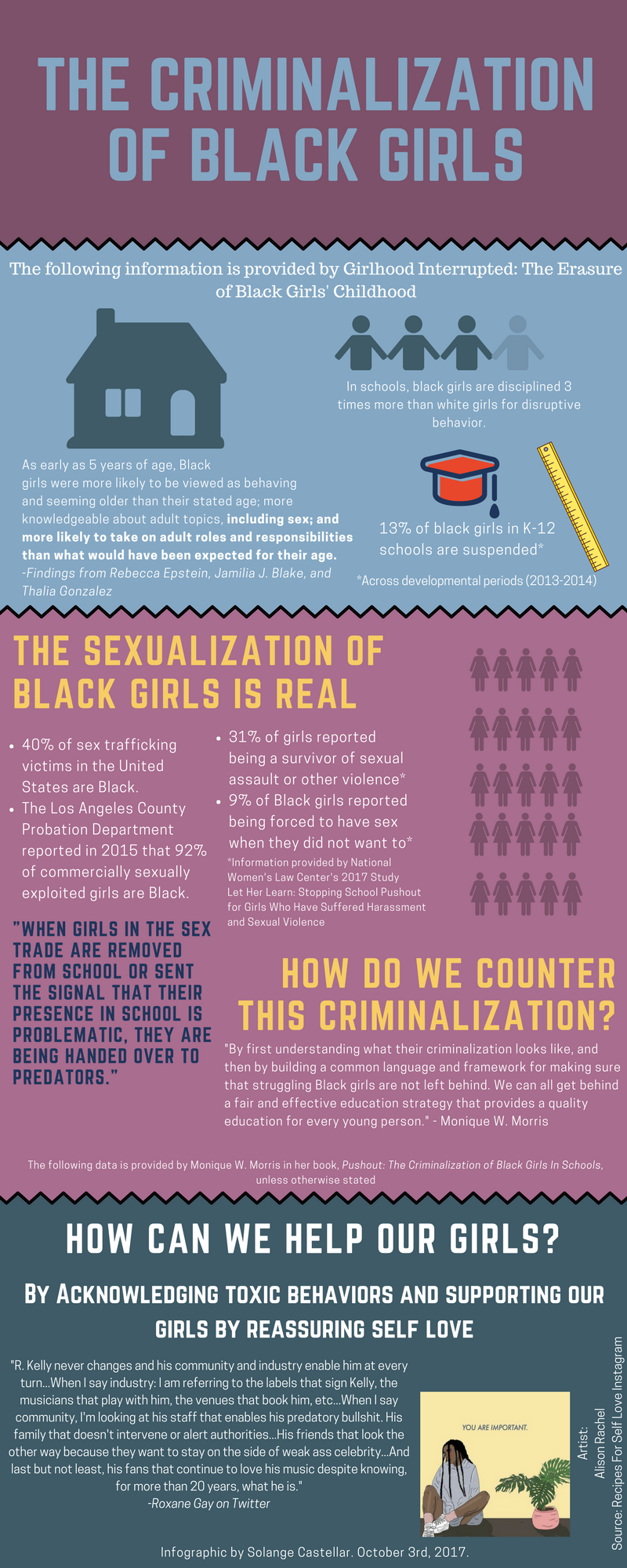October 1 |
III. Announcements & Etc...
|
|
|
|
For Consideration: Why are digital spaces the place where these issues are explored most?
Part One |
Let's open by spending time with Black Girls who are producing their own stories online. We are talking about serious political economies here but we need to also move beyond what Eve Tuck calls "damage-centered research" where we treat entire communities as "depleted." Click here for Tuck's Open Letter.
|
|
|
" ... we were searching for a vocabulary and didn't find one that was immediately available. The available discourses all seemed to come out of experiences that somehow, when they got to me, did a detour. [Laughter.] Or the language broke down. Or it could not speak in theoretical terms. There were always reasons the academy wouldn't address race and gender. And so my anxiety was finding a way to actually be in battle. To actually go to war with a whole repertoire of violent behavior that was always performed in a very genteel way. You know, people sitting around tables, sipping wine, eating cheese. They are just the nicest people in the world, but they are carefully cloaking just an incredible hostility. And so the idea was to break from that barrier." ~Hortense Spillers Directions
Choose one of the videos at the left. Watch the video in its entirety and jot down some answers to these notes:
|
Part TwoThese are 24 Student-Designed Questions from Undergraduates in a 100-level gender studies course:
THESE STUDENT QUESTIONS ARE DIRECTLY RELEVANT TO TODAY'S READING:
1. Many black feminists argue that black women are often stereotyped as loud, angry, aggressive and/or as whores, breeders, and mistresses? Why do these stereotypes exist? Is gender studies/feminism doing enough to center and include the experiences of black women and black feminists? 2. Given the number of innocent, unarmed black women who have been killed at the hands of police, why is this ignored? Why do we/they keep making excuses for police violence? 3.Black girls are suspended from schools at much higher rates than white kids, even for lesser infractions. What is the point of this? How do schools and colleges benefit from shutting out black students? How does this impact the black community's relationship with schools and institutions? How does this impact black youth's own emotions? How can schools do more to build better relationships rather than just over-discipline? 4. How do we protect black girls from schools? |
Site Designed/Maintained by Carmen Kynard
|

